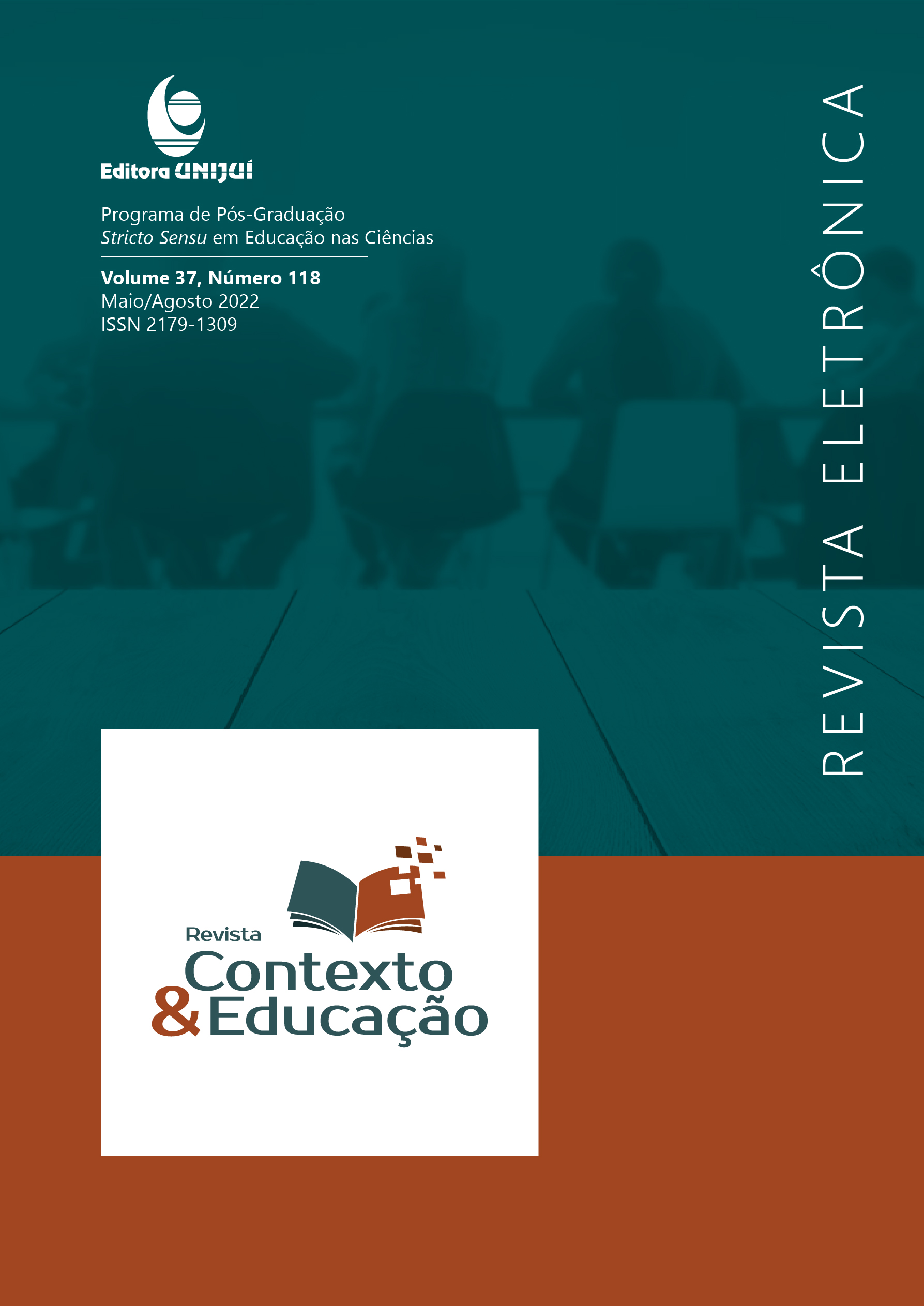Environmental education as a cross-cutting theme: Conceptions of the coordinators of a public network
DOI:
https://doi.org/10.21527/2179-1309.2022.118.9336Abstract
Environmental education (EA) viewed from the emancipatory and liberating viewpoint is one that takes into account ethical, aesthetic, political, economic, cultural and environmental aspects. In this sense, AS as a cross-cutting, is between, crosses and projects beyond the disciplines of the curriculum, being a transversal axis and triggers problems whose reflections are beyond the knowledge contained in a single curricular discipline. Within this conception, will the pedagogical coordinators who work in the municipal public schools of a city in the Paraíba Valley understand EA in this transversal perspective? The approach of this research was the application of a structured questionnaire elaborated on a Likert scale with Kruskal Wallis variance test and Student Newman-Keuls post-test to the 41 pedagogical coordinators of the teaching network in question. To better understand the results, the coordinators were divided into three groups, the ones that work in rural, urban and central and urban and peripheral schools. The results pointed to a conception of the coordinators for a pseudotransversality indicating that as conception there is an understanding of the necessity of an approach of this theme in the transversal field, but that in the daily practice it does not occur, implying in the educative action fragmented, cognicist and massified.
Downloads
Published
How to Cite
Issue
Section
License
Copyright (c) 2021 Revista Contexto & Educação

This work is licensed under a Creative Commons Attribution 4.0 International License.
By publishing in Revista Contexto & Educação, authors agree to the following terms:
All works are published under the Creative Commons Attribution 4.0 International License (CC BY 4.0), which allows:
Sharing — to copy and redistribute the material in any medium or format;
Adaptation — to remix, transform, and build upon the material for any purpose, even commercially.
These permissions are irrevocable, provided that the following terms are respected:
Attribution — authors must be properly credited, a link to the license must be provided, and any changes made must be indicated.
No additional restrictions — no legal or technological measures may be applied that legally restrict others from doing anything the license permits.
Notices:
The license does not apply to elements that are in the public domain or covered by legal exceptions.
The license does not grant all necessary rights for specific uses (e.g., image rights, privacy, or moral rights).
The journal is not responsible for the opinions expressed in the articles, which are the sole responsibility of the authors. The Editor, with the support of the Editorial Board, reserves the right to suggest or request modifications when necessary.
Only original scientific articles presenting research results of interest that have not been previously published or simultaneously submitted to another journal with the same purpose will be accepted.
Mentions of trademarks or specific products are intended solely for identification purposes and do not imply any promotional relationship by the authors or the journal.
License Agreement (for articles published from October 2025): Authors retain the copyright to their article and grant Revista Contexto & Educação the right of first publication.


